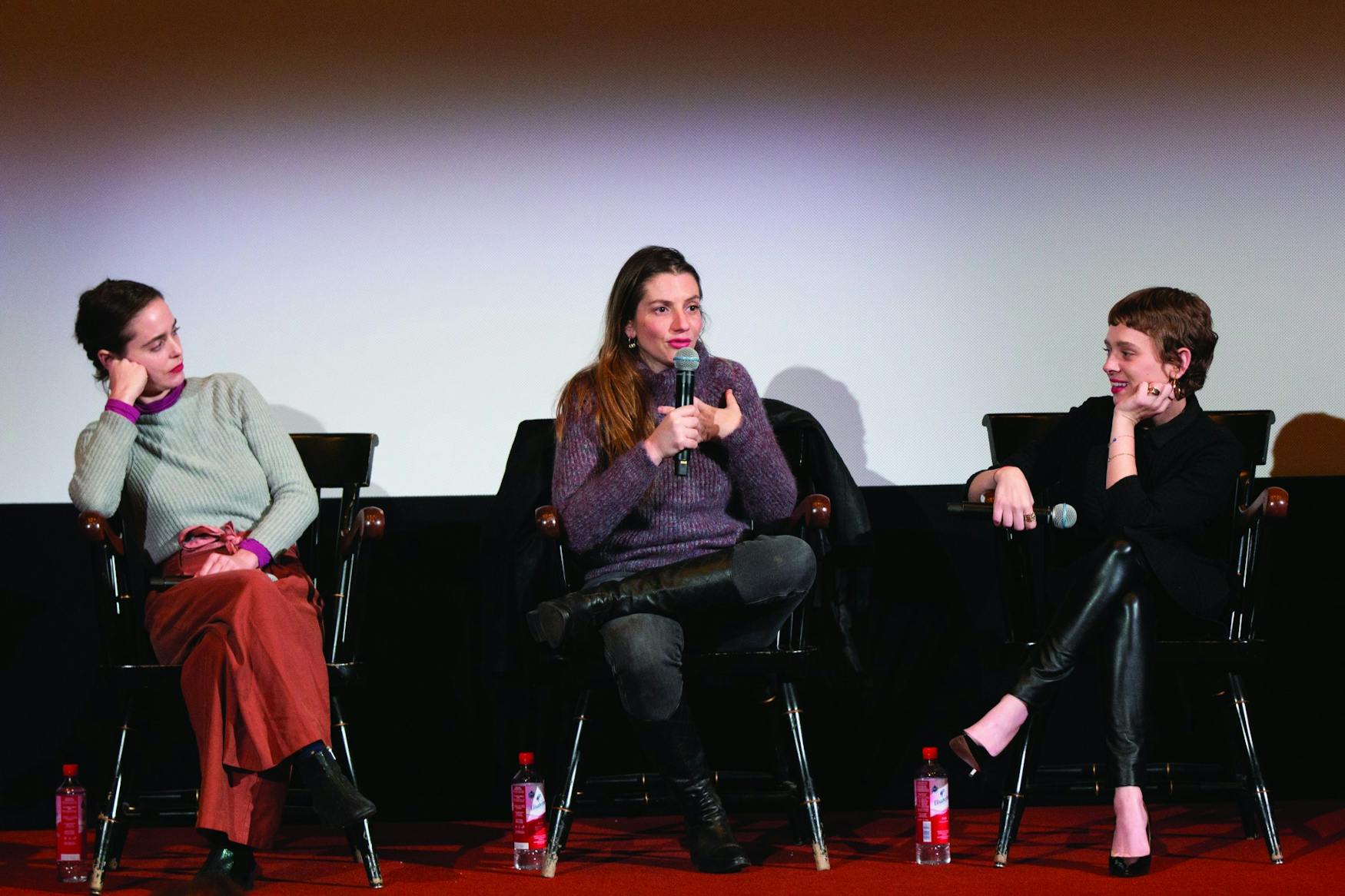Behind the scenes of ‘Shtisel’
On Oct. 29, I received a Branda notification that said some of the actors from “Shtisel” would be coming to Brandeis on Nov. 21. I practically jumped out of my chair and immediately got tickets. I haven’t even seen both seasons of “Shtisel,” an Israeli television drama available on Netflix, but I have seen enough to recognize its brilliance. For three weeks all I could talk about was this event, this small opportunity to be in the same room as Giti (Shira Haas), Ruchami (Neta Riskin) and Libbi (Hadas Yaron).
The Wasserman Cinematheque was filled with excited students, parents and faculty members. Chair of the Near Eastern and Judaic Studies Department Prof. Eugene Sheppard (NEJS) introduced the event, saying that “Shtisel” takes audiences inside a community that tends to be caricatured and is so widely beloved for this and many other reasons. He then introduced Prof. Alice Kelikian (HIST) who, with sponsorship from The Edie and Lew Wasserman Fund and support from the Office of the President, was the driving force that brought the women of “Shtisel” to campus. She ushered the actresses onstage and mediated their conversation interspersed with clips from the show to demonstrate various talking points.
Neta Riskin, a veteran of “Shtisel” panel discussions and the most vocal of the three, was quick to point out that the Nov. 21 event was the first ever all-female “Shtisel” panel in the United States. She tied this into the fact that the stories of our Euro-centric cultural heritage tend to focus on “the man” — the Odysseus type who leaves his family at home and has exciting adventures. She acknowledged that lately more of our media has flipped the trope, allowing a “woman to play the man,” but the story of the spouse who stays at home (regardless of gender) is still untold. Riskin’s character, Giti, is the one who stays at home while her husband has crazy adventures— “we follow [her] ‘boring’ role.” The life of a housewife (or a house-spouse) can be dramatic and interesting and fit for TV.
Hadas Yaron, who joined the cast in the second season as Libbi, a new love interest for the central character, Akiva, had some profound insights about the expressions of love and longing in the show. All the characters are ultra-Orthodox (Haredi) Jews and do not show intimacy the way we would expect them to. Men and women cannot be alone together or touch each other at all unless they are married or related. Marriages are arranged after a handful of dates and most people are married with children by the age of 23. As a result, Yaron explained, so much isn’t said aloud and is instead said other ways. There is a lot of tension in every scene, which she described as “so beautiful to see somebody want something” and not immediately get it.
Shira Haas, the youngest member of the panel, was 16 and a half years old when she auditioned for the role of Ruchami, Giti’s daughter, on “Shtisel.” She and Riskin discussed their troubled mother-daughter dynamic, noting that Ruchami just wants a stable home and instead is forced into the “husband” role in her own home when her father leaves in the first season. This leads to a deep resentment toward her mother and is eventually what drives her to leave home and get married in the second season. Haas did not speak as much as Riskin, but she had an energetic presence and added some humor to the conversation.
I cannot do justice in one article to all the eye-opening insights given by these women who have spent so much time embodying Giti, Ruchami and Libbi. They talked about their experiences as secular women playing ultra-religious roles and taking control of a narrative often limited to men. Riskin even explained that the costume department had a competition to find Giti the ugliest outfit (the winner was a black robe with pink roses in episode 12 of the first season). Overall, I am grateful to the Film, Television and Interactive Media Program and Professor Kelikian for bringing these amazing women to Brandeis and hope to see more events like this in the future!




Please note All comments are eligible for publication in The Justice.